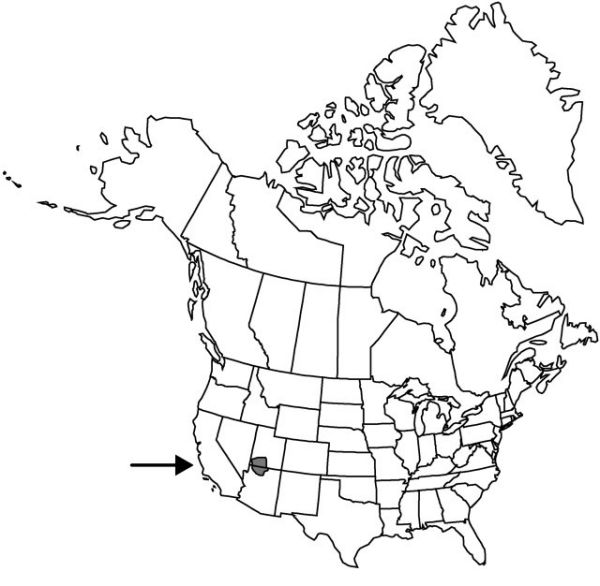Yucca angustissima var. kanabensis
in A. Cronquist et al., Intermount. Fl. 6: 534. 1977.
Endemic
Basionym: Yucca kanabensis McKelvey Yuccas Southw. U.S. 2: 122, plates 48, 49. 1947
Plants forming small to extremely large colonies, caulescent or short-procumbent. Stems short-procumbent, 0.1–0.4 m, 2–3.5 m with peduncle and inflorescence. Leaf blade plano-convex or plano-keeled, 45–80(–150) × 1.2–2 cm, stiff but somewhat flexible, smooth abaxially, slightly roughened adaxially. Inflorescences racemose, 10–20 dm; peduncle 1–1.5 m. Flowers 5.5–6.5 × 2.3–4 cm; tepals often tinged pink or brown, elliptic to orbiculate; filaments 2.5–2.8 cm; anthers 5–6 mm; pistil oblong-cylindric, 3–3.5 × 0.7–0.9 cm; style 5–8 mm. Capsules moderately constricted, 6.5–7.5 cm.
Phenology: Flowering spring–early summer.
Habitat: Sandy places of juniper - pinyon pine - oak woodlands, desert canyon hillsides
Elevation: 1400–1900 m
Discussion
Selected References
None.
Lower Taxa
None.
